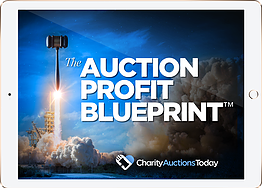DOWNLOAD The Auction Profit Blueprint
The 4 tools BIG organizations use every time to skyrocket auction profits!
The Step-By-Step Guide to stop leaving thousands on the table.

Grants can be a powerful tool in the hands of nonprofits. There are many funds available that qualified nonprofits can apply for. We’ll explain different types of grants, pros and cons of applying, where to find grant opportunities, and some tips on how to apply to them.
Do your research and take advantage of grants for nonprofits so that your organization can do more to help your community.
Grants for nonprofit are sums of money that don’t need to be repaid. These are often distributed by government agencies, foundations, or corporations.
These organizations often only give these grants to nonprofit organizations that meet certain conditions, like following particular reporting procedures. Their grants might also be limited to certain projects as opposed to anything the receiving organization might need funds for. This type of grant is generally referred to as program development grants or restricted funding.
Another type of grant is capital support, which often provides funds for a specific campaign like remodeling a building, buying land, or constructing a new building for the nonprofit to use. Operating support grants, also called unrestricted funding, provide grant money to cover a nonprofit’s everyday operating costs.
You might think that more money will solve a lot of your organization’s challenges, but there are some important questions you should discuss with your team before apply for grants.
What would you do with the grant money? Would you be able to sustain that process or project once the grant money was gone? Do you currently have the staff or volunteer force to accommodate the workload of the projects the grant money would fund? What’s your current track record with successfully running your programs and initiatives?
In short: are you ready for the sudden influx of money, or should you wait until your organization’s infrastructure is stronger?
Grants can, of course, provide funding for big projects or expansion of your organization, which can be wonderful for your cause. However they can also come with strings attached.
Pros:
Cons:
You can search for government grants, foundation grants, or corporate grants, according to your needs and preferences. We’ve listed some of the most popular sources for each below, but there are undoubtedly more out there. Google and grant databases like GrantWatch or GrantFinder are your friends.
Every list about grants for nonprofits is going to list this source first. This database is where you can find grants issued by more than 25 government agencies. All the grants in this database are federally funded and the list itself is managed by the U.S. Office of Management and Budget. Read every individual grant application carefully as these government grants have some different requirements to foundation or corporate grants.
This list of local grants for nonprofits is maintained by the Economic Development Administration. The Economic Development Directory allows you to search for government funding opportunities in your state or city. These might be smaller grants but they’ll be just as powerful in the hands of a small, focused nonprofit.
Andrew Carnegie gave away roughly 90% of his personal fortune over his lifetime, so it’s no wonder that this foundation is still helping other nonprofit organizations today. The Carnegie Corporation does not provide unrestricted funding but focuses instead on four areas of interest: education, democracy, international peace and security, and higher education and research in Africa. These are fairly broad categories but you’ll still have to make sure that your project falls into one of them.
The Bank of America Foundation chooses specific issues to focus on each year, though they always fall in the broader category of economic mobility. In 2023 they accepted grant proposals that focused on helping families achieve economic mobility, and helping communities achieve economic mobility. If your organization’s project falls into the economic mobility category, check this foundation’s areas of focus every year.
Qualifying organizations can apply for small grants, between $250-$5,000, to support initiatives that aim to improve food insecurity and children’s health, as well as diversity, equity, and inclusion. If selected by Aldi Cares Community Grants, your organization can only receive funding once per year, however you can apply each year. Additionally, if your application was rejected, you can try again in six months
If you’re confident that your nonprofit’s website is well-built, tightly run, and provides a good experience for visitors you should consider applying for Google Ad Grants. This corporate grand program will provide up to $10,000 per month in search ads that will display on Google.com, so your organization will be seen by more people when they search for relevant terms. This can help you reach donors or the people you’re trying to help.
Obviously there are many foundations and corporations willing to help fund nonprofits’ work. The key is finding the ones that will support your organization’s projects and initiatives. Here are some tips on how to find grants that will help you and your organization.
Applying to grants can be such an arduous process that sometimes nonprofits hire someone to do it full time. Even if you don’t have these resources at your disposal you can brush up on how to write clean, compelling grant proposals.
Grant applications can run the gamut from fairly simple to complex. You will need to have your paperwork in order proving that you’re a nonprofit, outlining your mission, explaining the project you want funded, and perhaps even your tax records. Develop stats that show the impact of your work and gather quotes from leadership, the people you help, and your community at large. Don’t forget to check and double check submission deadlines.
Grant givers will want to know how you propose to use their money. You should have a plan in place, with as much detail as possible, about how you’ll use this money. Of course, this might be fairly straightforward for smaller grants: “We will use the $250 to transport up to 30 cats from crowded shelters in X to accommodating shelters in Y,” for example. But the more money you’re requesting the more detailed you’ll need to be about you plan to spend it.
Grant proposal writing is an art. You must remember that every foundation and corporate grant maker out there likely fields hundreds if not thousands of applications every year. Your proposal must stand out in some way. This form of persuasive writing follows certain conventions and formats. This is not to discourage you from learning these skills, but you might have a better chance at netting grants if you can hire or consult a professional grant writer.
There are far more grant opportunities out there than what we could reasonably list here. Do your research and find the ones that align with your organization’s mission. Organize your paperwork and approach each application with thoughtful effort and you might just net your nonprofit more funds to do more good works.
DOWNLOAD The Auction Profit Blueprint
The 4 tools BIG organizations use every time to skyrocket auction profits!
The Step-By-Step Guide to stop leaving thousands on the table.

